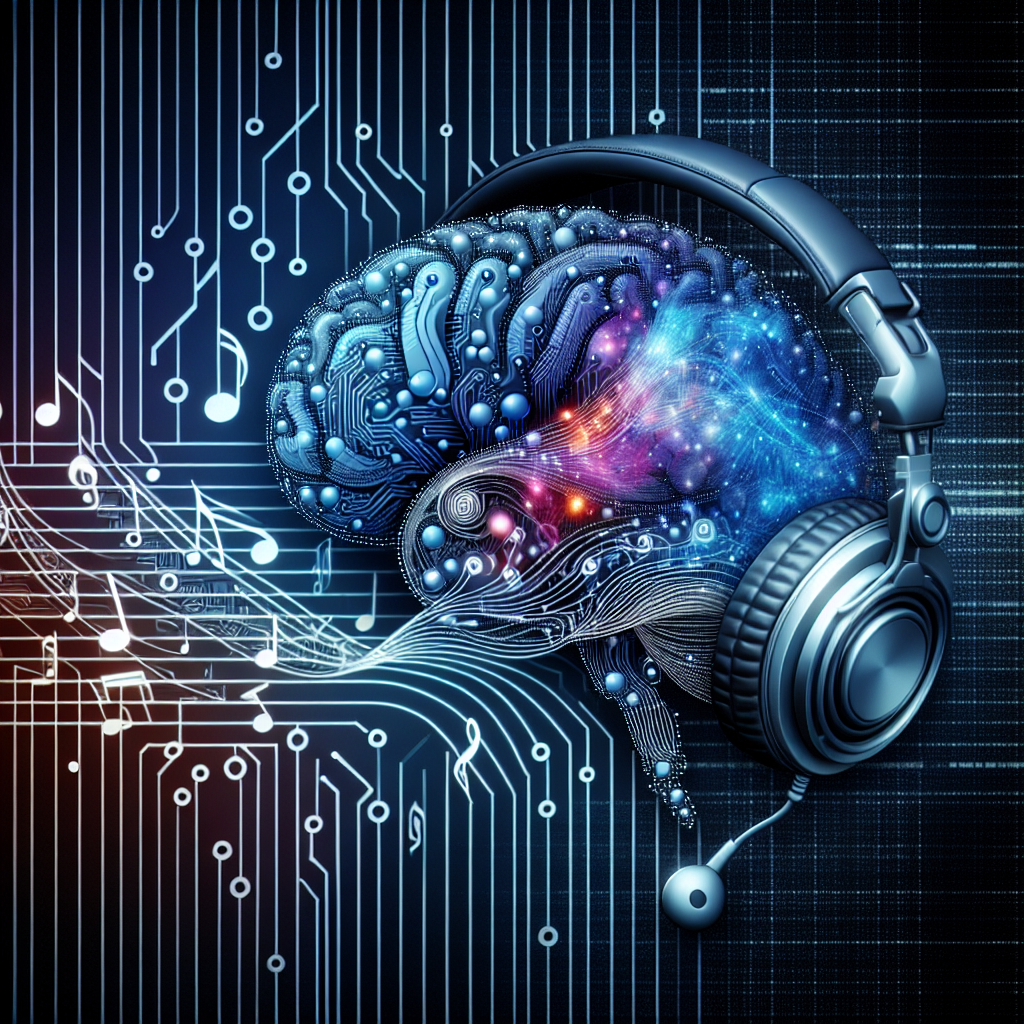Music recommendation algorithms have become an integral part of our everyday lives, shaping the way we discover and consume music. With the rise of streaming platforms like Spotify, Apple Music, and Pandora, the need for personalized music recommendations has never been greater. These algorithms use artificial intelligence (AI) to analyze user preferences and behaviors in order to suggest songs, artists, and playlists that are likely to be of interest to the listener.
AI has revolutionized the way we interact with music, making it easier than ever to discover new music that matches our tastes. In this article, we will explore the development of music recommendation algorithms, how AI is used to power these algorithms, and the impact they have on the music industry and listeners.
The Development of Music Recommendation Algorithms
Music recommendation algorithms have come a long way since the early days of radio stations and record stores. In the past, music recommendations were largely based on human curation, with DJs, music critics, and record store employees playing a key role in helping listeners discover new music. However, with the advent of digital music streaming services, the need for automated recommendation algorithms became apparent.
The first music recommendation algorithms were relatively simple, using basic collaborative filtering techniques to suggest songs based on user ratings and preferences. However, as AI technology advanced, so did the sophistication of these algorithms. Today, music recommendation algorithms use a combination of machine learning, natural language processing, and deep learning to analyze vast amounts of data and make personalized recommendations to users.
How AI Powers Music Recommendation Algorithms
AI plays a crucial role in powering music recommendation algorithms, enabling them to analyze user behavior, preferences, and listening habits in real-time. These algorithms use a variety of techniques to learn from user interactions and provide personalized recommendations, including:
Collaborative filtering: This technique analyzes user preferences and behaviors to recommend music based on similar users’ tastes. By comparing a user’s listening history to that of other users, collaborative filtering algorithms can suggest songs and artists that are likely to be of interest.
Content-based filtering: This technique analyzes the attributes of songs and artists, such as genre, tempo, and mood, to recommend music that matches a user’s preferences. Content-based filtering algorithms can suggest songs based on their musical features, making them particularly effective for recommending new or lesser-known artists.
Deep learning: Deep learning algorithms use artificial neural networks to analyze vast amounts of data and make complex predictions. By training on large datasets of music and user interactions, deep learning algorithms can learn patterns and relationships between songs, artists, and users to make accurate recommendations.
Natural language processing: Natural language processing algorithms analyze text data, such as user reviews, comments, and social media posts, to understand user preferences and sentiments. By analyzing the language users use to describe music, natural language processing algorithms can provide more contextually relevant recommendations.
The Impact of Music Recommendation Algorithms
The rise of music recommendation algorithms has had a profound impact on the music industry and listeners alike. For artists, these algorithms provide a new way to reach audiences and promote their music. By getting their songs featured on popular playlists or recommended to listeners, artists can gain exposure and attract new fans. Additionally, music recommendation algorithms help artists understand their audience better and tailor their music to meet their fans’ preferences.
For listeners, music recommendation algorithms offer a more personalized and curated music discovery experience. Instead of relying on radio stations or record stores to find new music, listeners can now rely on algorithmic recommendations to discover songs and artists that match their tastes. This has led to a more diverse and inclusive music landscape, with listeners being exposed to a wider range of genres and artists than ever before.
FAQs
Q: How do music recommendation algorithms know what music I like?
A: Music recommendation algorithms analyze your listening history, preferences, and behaviors to make personalized recommendations. By tracking the songs you listen to, the artists you follow, and the playlists you create, these algorithms can learn your musical tastes and suggest songs that are likely to be of interest.
Q: Are music recommendation algorithms biased?
A: Like all algorithms, music recommendation algorithms can be biased if they are trained on biased data. For example, if the training data is predominantly male or white artists, the algorithm may be more likely to recommend music by male or white artists. To mitigate bias, developers need to ensure that the training data is diverse and representative of the entire music landscape.
Q: Can music recommendation algorithms predict what songs will become hits?
A: While music recommendation algorithms can analyze user preferences and behaviors to make personalized recommendations, predicting hit songs is a more complex task. While these algorithms can identify songs that are trending or being shared widely, predicting the next big hit is still largely based on human intuition and industry expertise.
Q: How can I improve the recommendations I receive from music recommendation algorithms?
A: To improve the recommendations you receive from music recommendation algorithms, you can actively engage with the platform by liking, saving, and sharing songs you enjoy. By providing feedback on the recommendations you receive, the algorithm can learn your preferences more accurately and provide more personalized suggestions.
In conclusion, AI-powered music recommendation algorithms have revolutionized the way we discover and consume music, providing listeners with personalized and curated recommendations that match their tastes. By analyzing user behaviors, preferences, and interactions, these algorithms can suggest songs, artists, and playlists that are likely to be of interest, creating a more diverse and inclusive music landscape for both artists and listeners. As AI technology continues to advance, we can expect music recommendation algorithms to become even more sophisticated and accurate, further enhancing the music discovery experience for listeners around the world.

